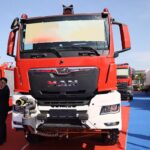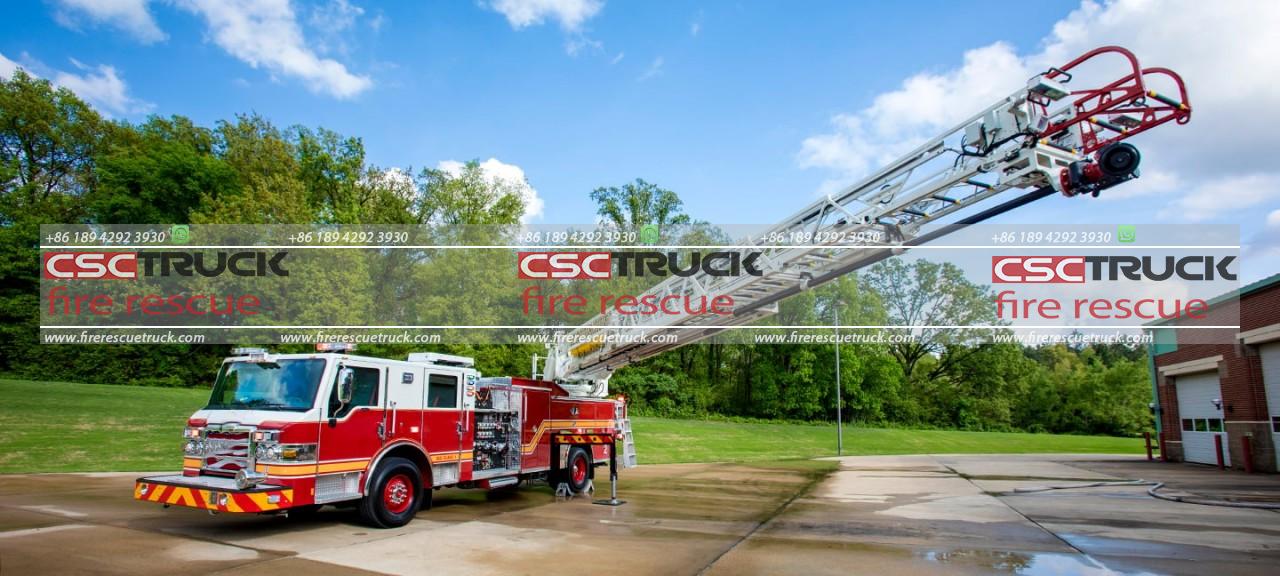Airport fire trucks are undoubtedly the most eye-catching vehicles in the firefighting world.
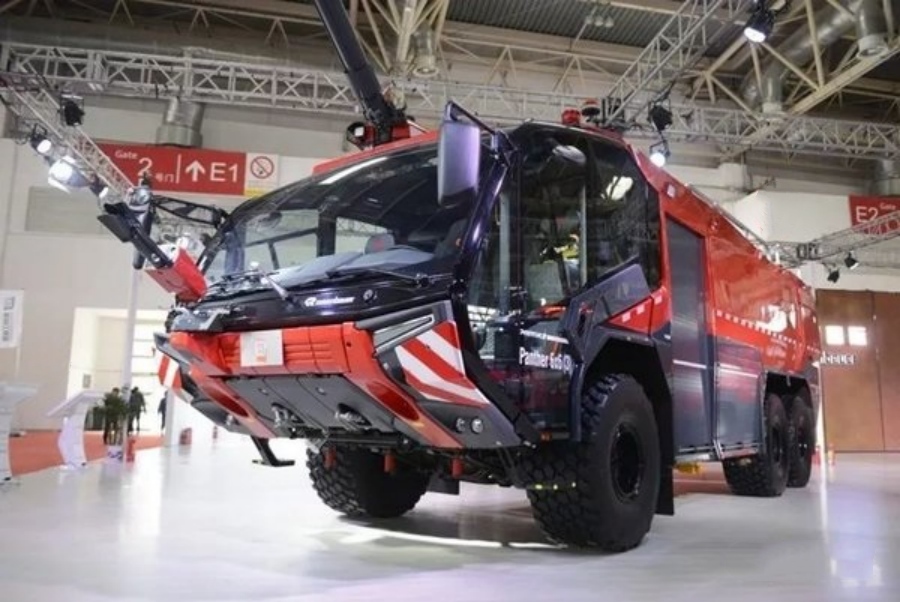
With their massive size and powerful engines, every deployment gets the adrenaline pumping. Austria’s Rosenbauer is a shining star in the firefighting industry, and its airport fire trucks are truly top-tier.
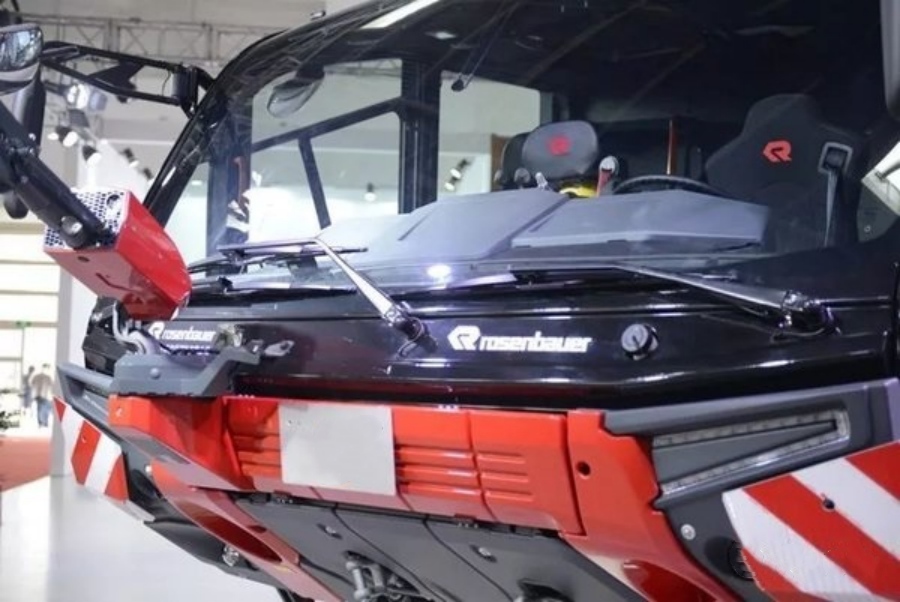
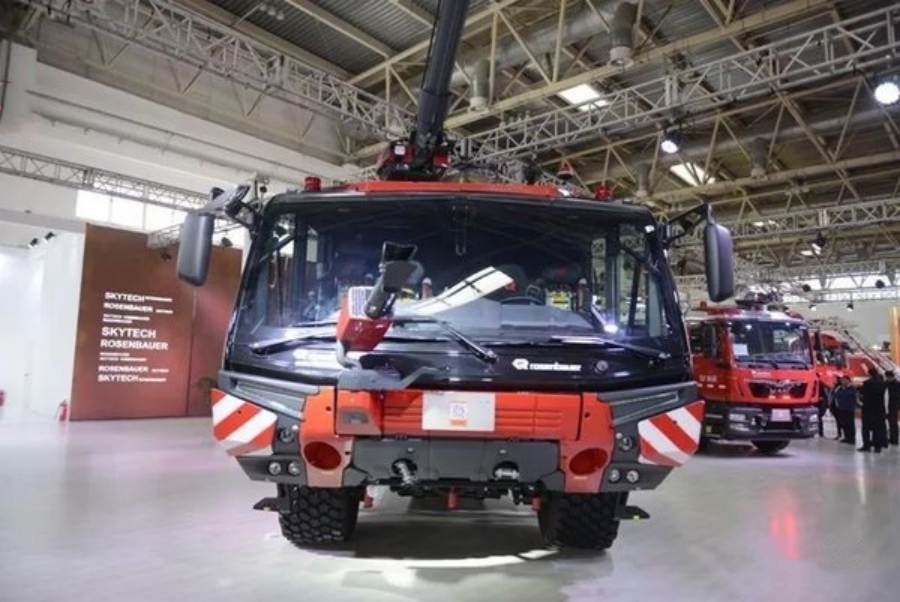
The Panther Airport Fire Truck features a V-shaped front face, with its sharp LED driving lights on both sides being especially striking. The overall design retains the predecessor’s bionic pointed nose style, which helps reduce air resistance and improve speed.
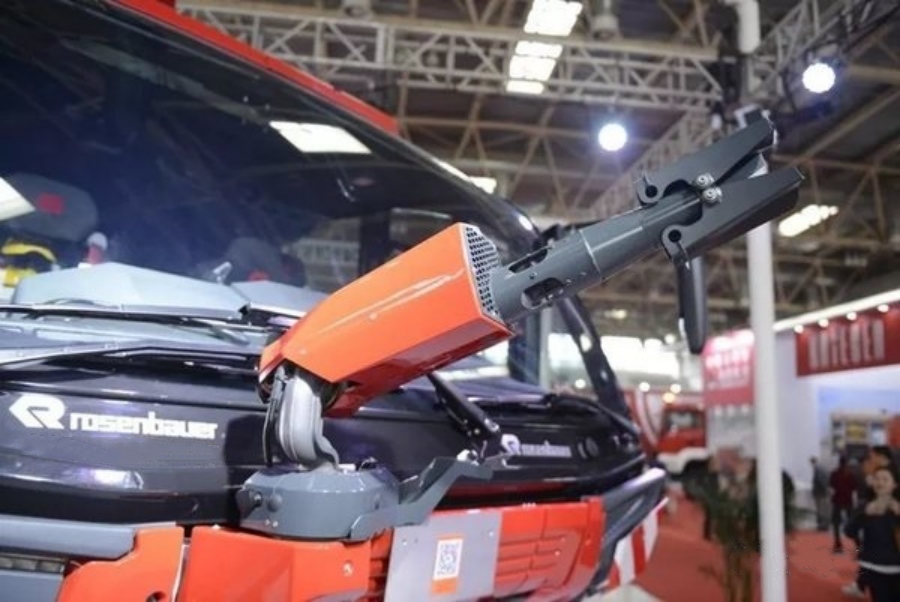
Front-Mounted Fire Cannon
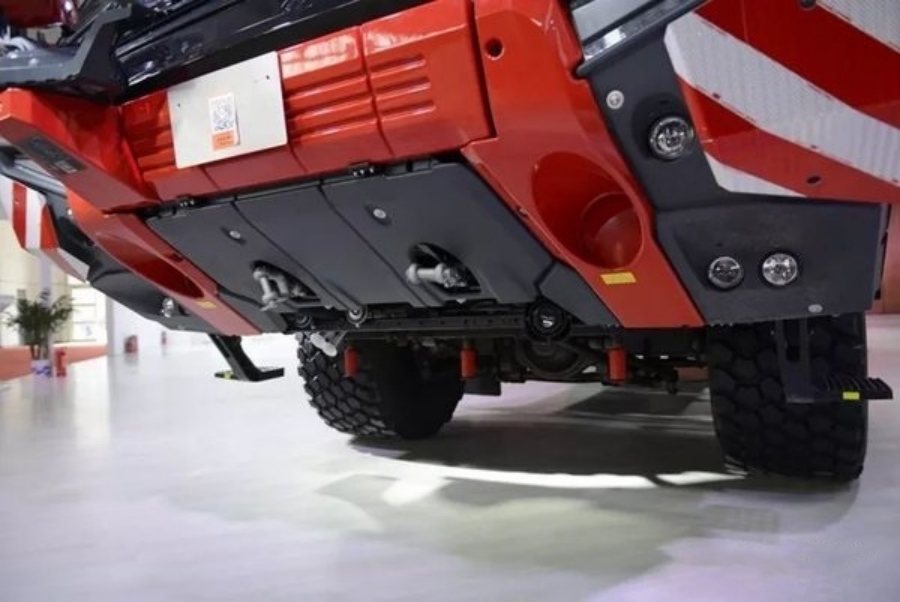
The headlights and towing hooks are all installed in the lower half of the front end, giving the vehicle a large approach angle.
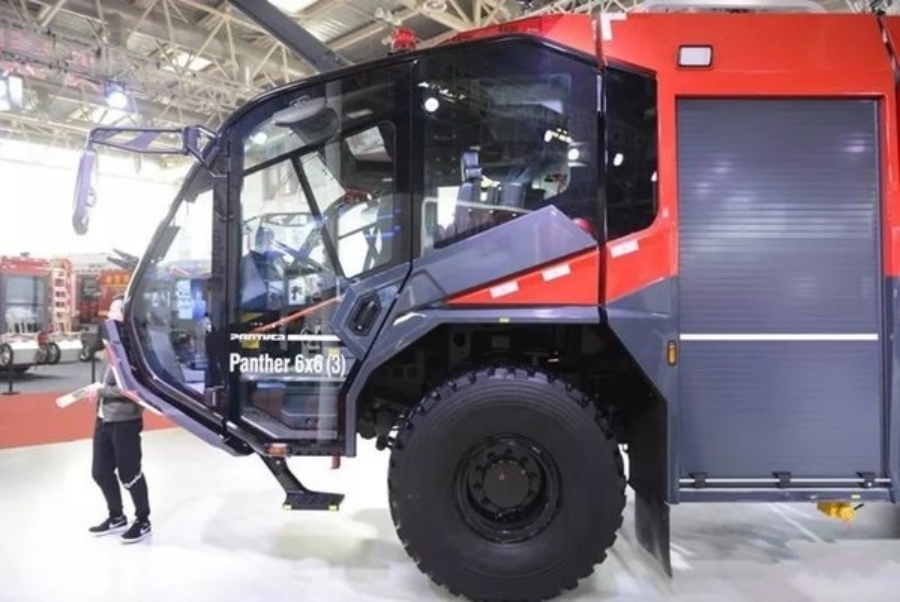
The cab is predominantly encased in glass, providing excellent visibility. Both sides are equipped with rotating-style boarding steps. A larger water cannon is mounted on top of the cab, which, compared to the front-mounted one, delivers higher pressure and stronger suppression capabilities.
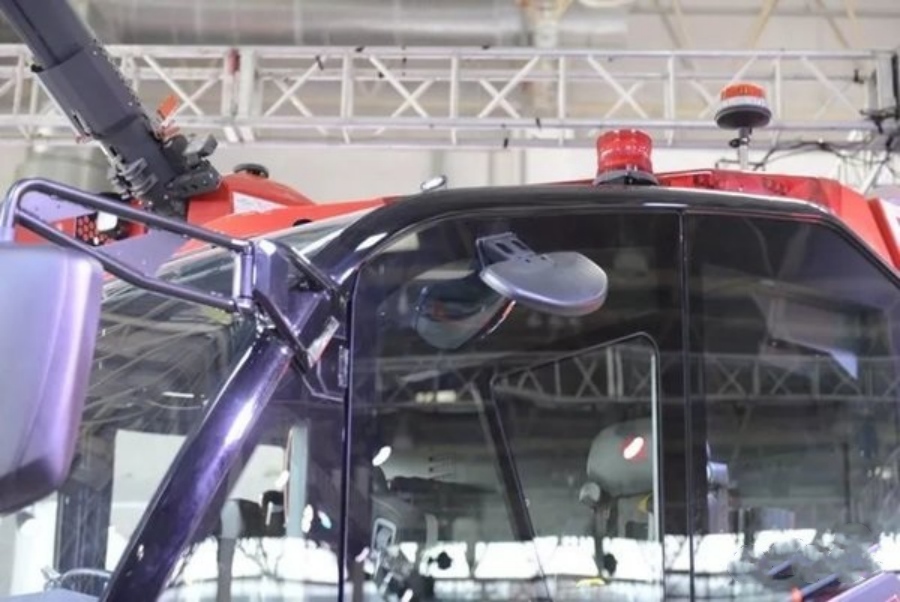
Ground-View Mirrors on Both Sides of the Cab
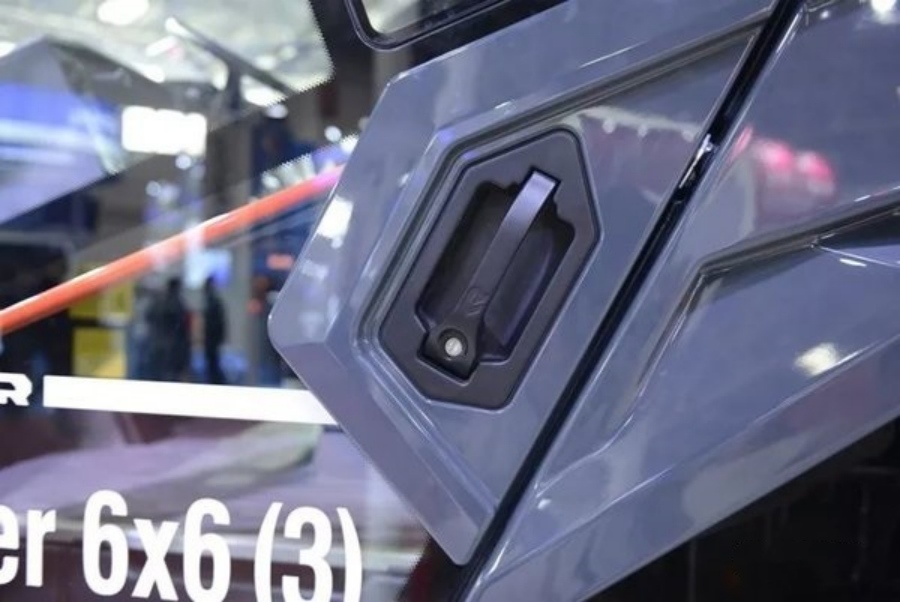
The door switch design and the extensive use of glass give the impression that the cab might be fragile in a crash. In reality, the entire cab is built with a robust framework, and the glass is made of high-strength tempered material, certified by EU impact tests to meet safety standards.
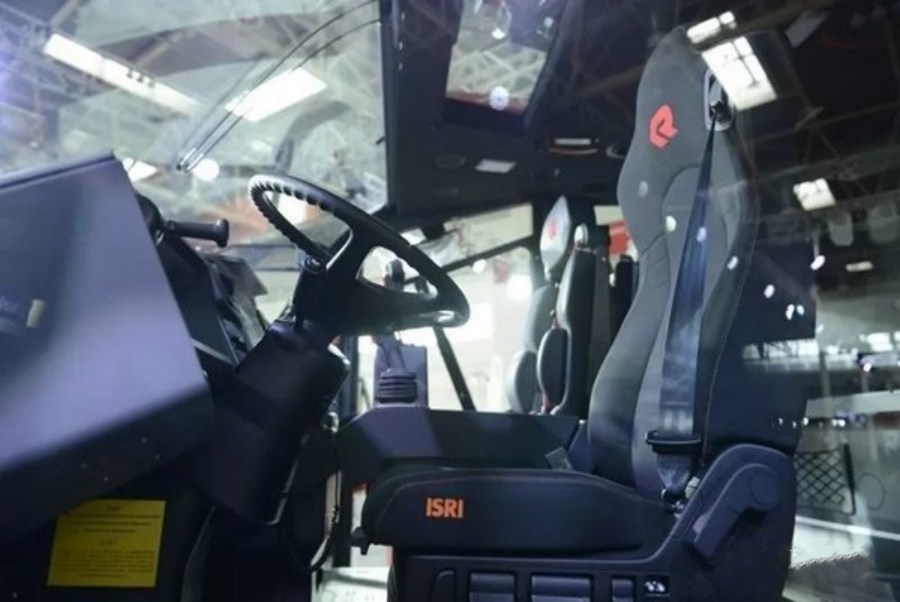
Inside, the cab appears luxurious and high-tech.
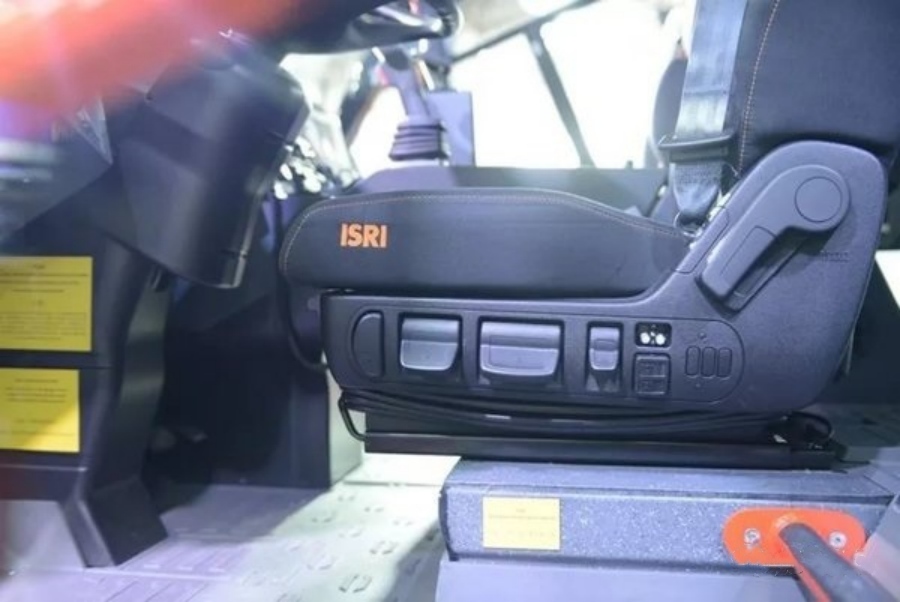
All seats are made by Isringhausen, offering multiple adjustment options — not cheap.
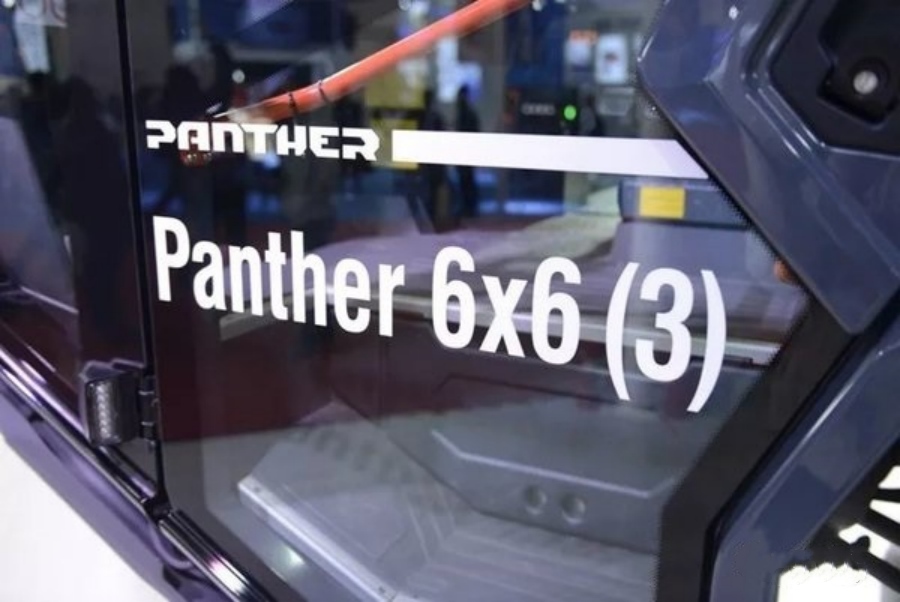
Rosenbauer Panther Logo Sticker on the Door
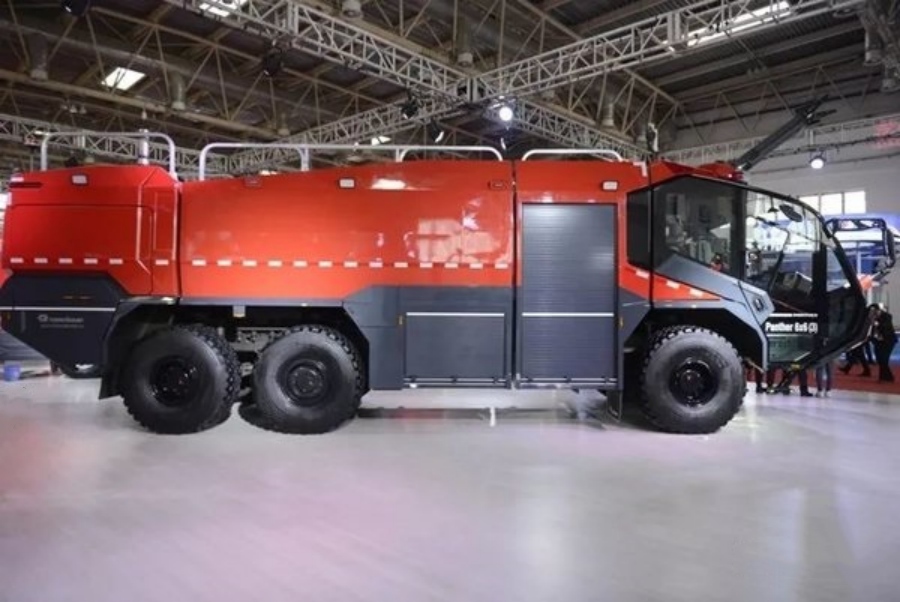
| Specification | Detail |
|---|---|
| Chassis Model | Rosenbauer RBI 39.700_6×6 |
| Drive Configuration | 6×6 |
| Engine Power | 700 horsepower |
| Chassis Class | 39-ton level |
| Gross Design Weight (GDW) | 36 tons |
| Curb Weight | 21 tons |
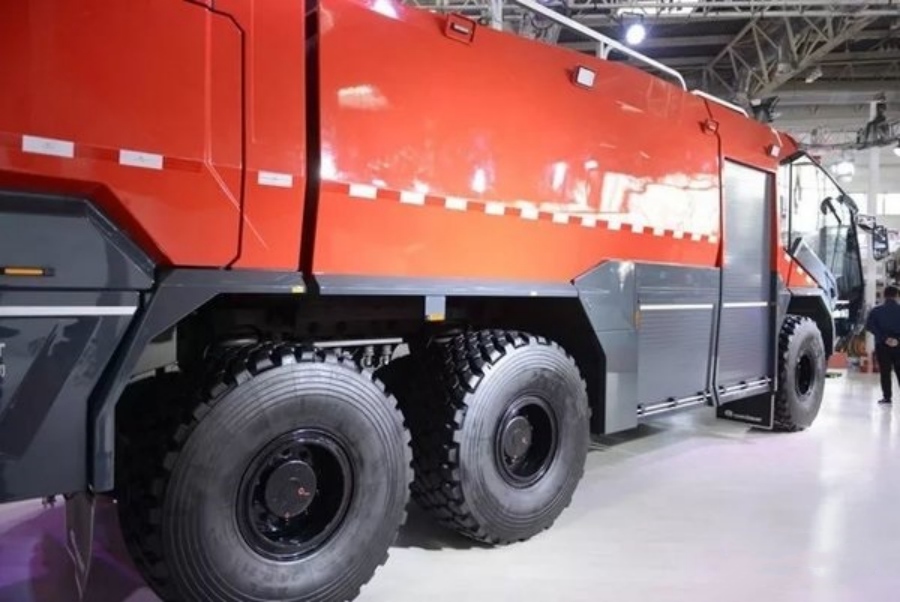
At the center of the body, the water tank holds 12,500 liters, and the foam tank holds 1,500 liters. The fire pump has a flow rate of 150 liters per second, meaning the combined tank capacity allows for about 93 seconds of full suppression output. However, airport fire trucks are designed to be the first responders — their mission is to control the blaze quickly and prevent its spread. Long-term water supply is handled by specialized equipment or additional vehicles.
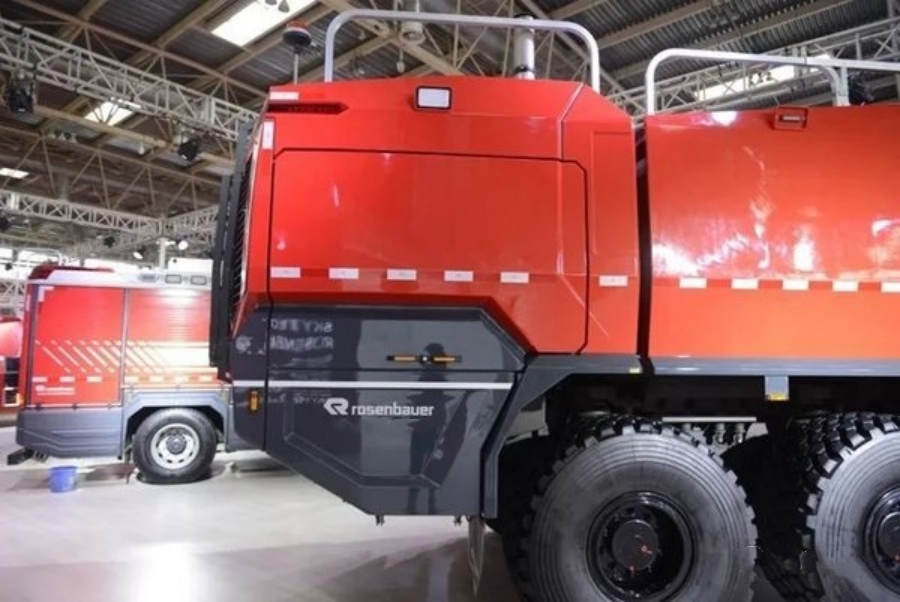
Rear Engine Compartment
There is a visible separation gap between the engine compartment and the central tank section.
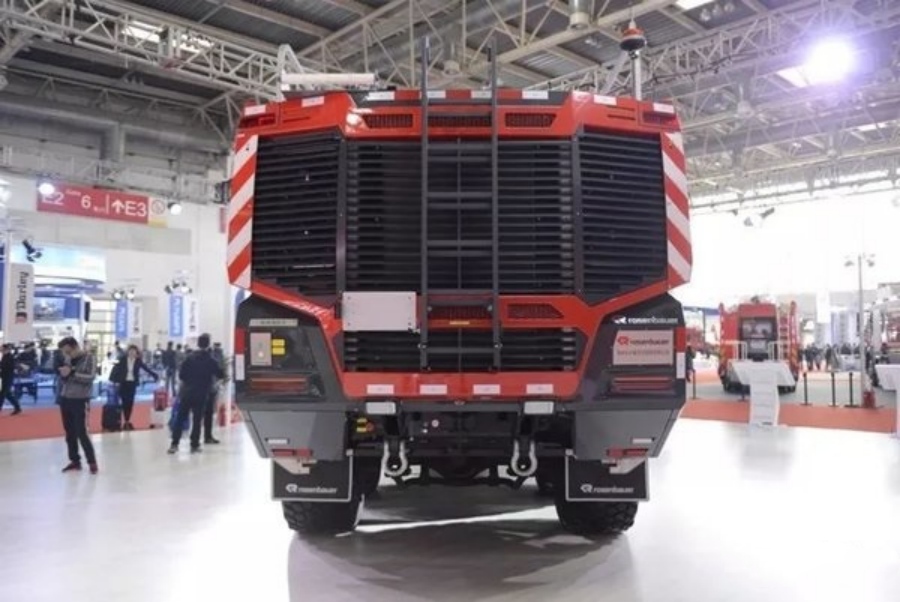
The rear is dominated by a radiator grille, with distinctive strip-style brake and turn signal lights on both sides. A retractable ladder is mounted at the center rear for roof access, where handrails are also provided.
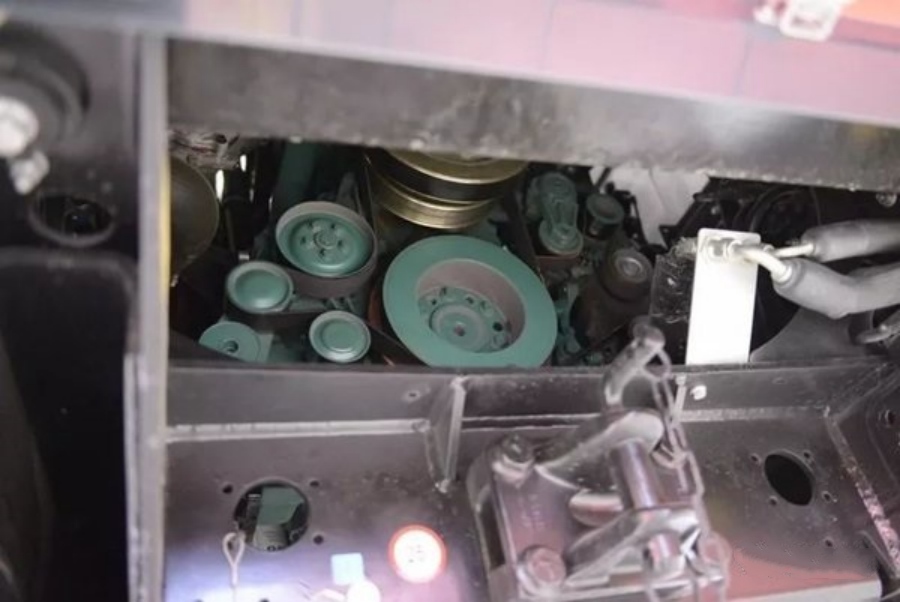
| Specification | Details |
|---|---|
| Primary Engine | Volvo D16 |
| Engine Power | 515 kW (705 hp) |
| Available Engine Options | Scania, Mercedes-Benz, MAN |
| Chassis Configurations | 4×4, 6×6, 8×8 |
| Power-to-Weight Ratio | 14.3 kW/t |
| Acceleration (0–80 km/h) | ~25 seconds |
| Top Speed | 130 km/h |
| Purpose | Airport rescue & firefighting – critical within the first 3 minutes |
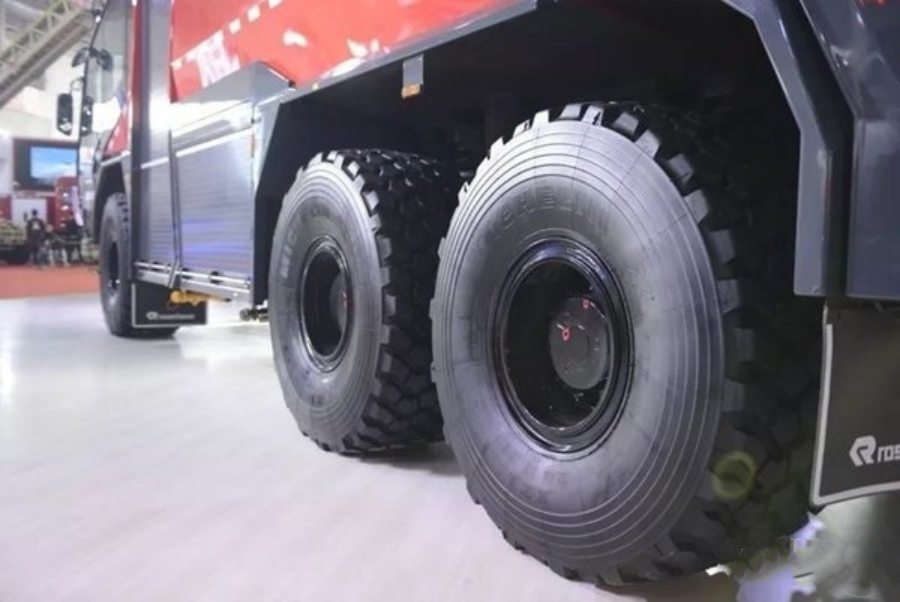
Axles and Suspension
The chassis uses hub reduction axles and 21-inch steel rims, giving it a strong, muscular appearance. It is equipped with Michelin XZL wide single tires with block tread patterns for maximum grip and reliability. Tire size: 24R21.
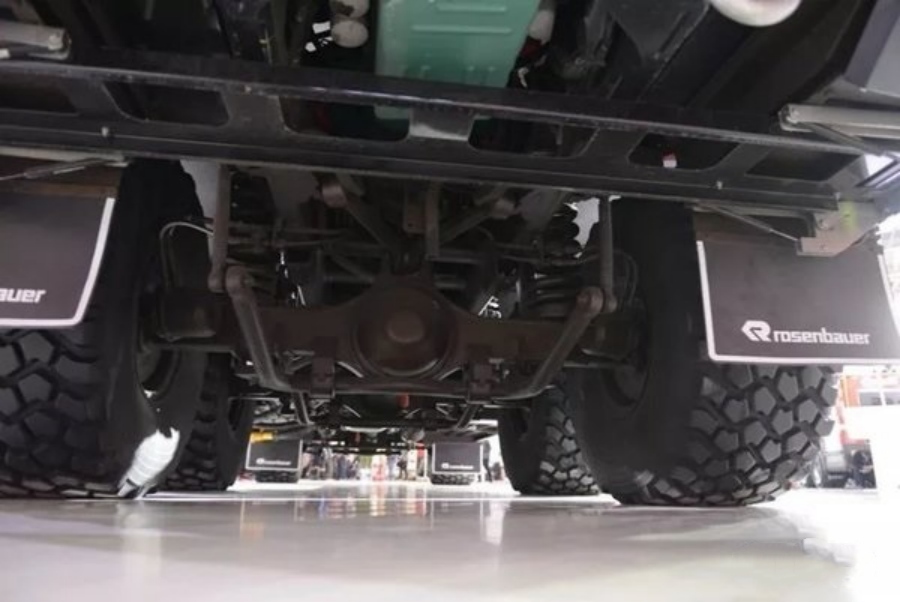
The axles are of an integral design, but the suspension system uses coil spring shock absorbers. The central part of the axle uses a V-shaped torque rod for stabilization, along with a U-shaped stabilizer bar to prevent excessive body roll during high-speed cornering.
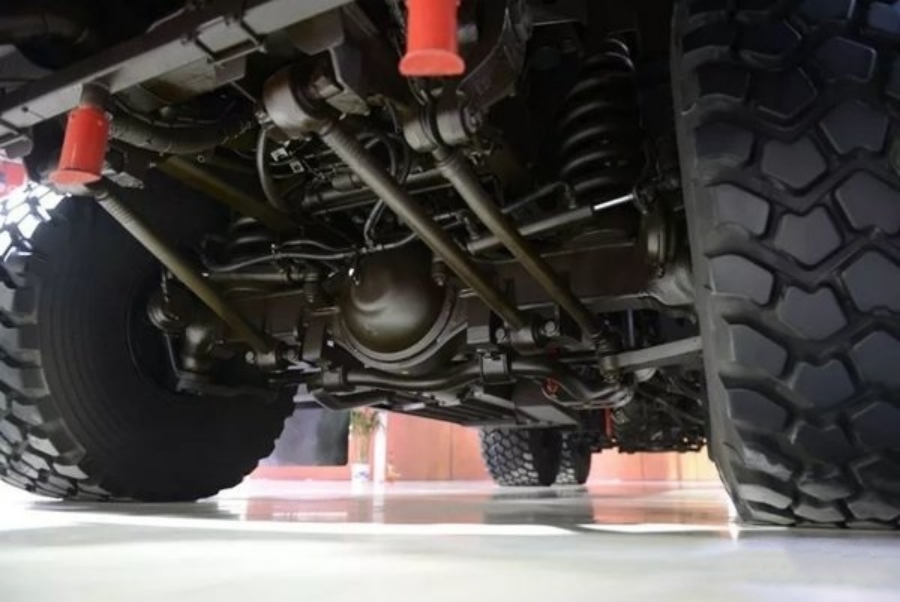
Front Axle Close-Up
Just like the rear axle, it uses independent suspension. The image shows how the chassis is densely packed with components, especially the stabilization systems.
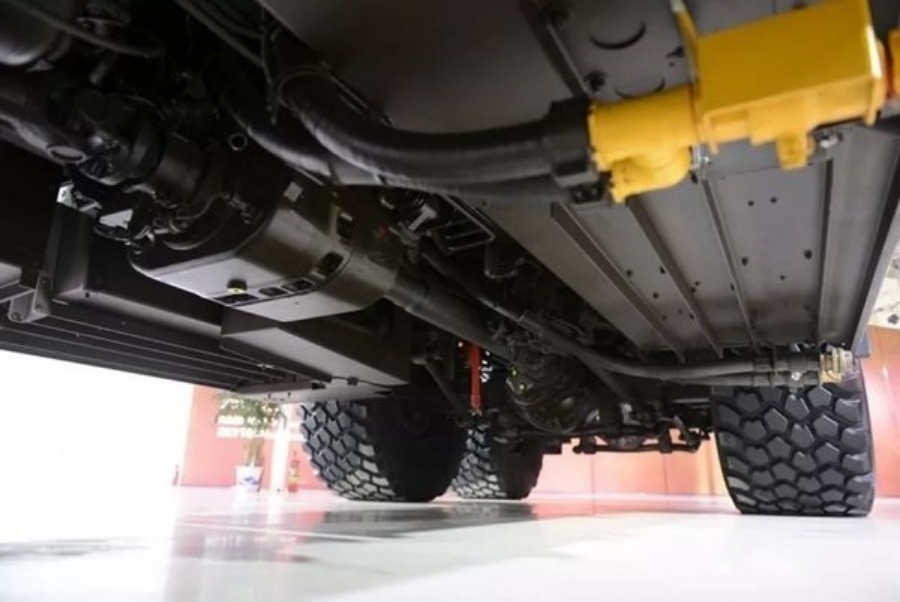
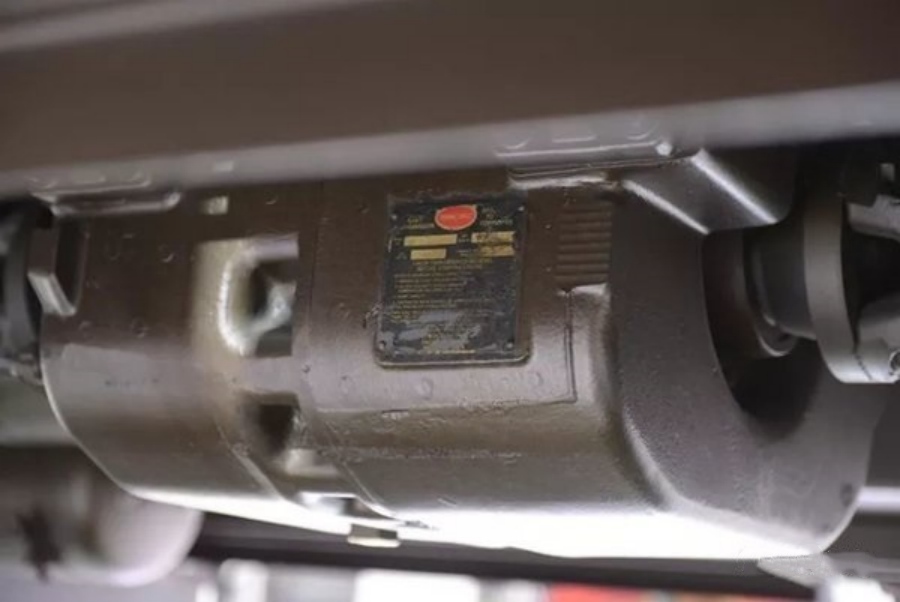
Transfer Case Located in the Middle of the Vehicle



